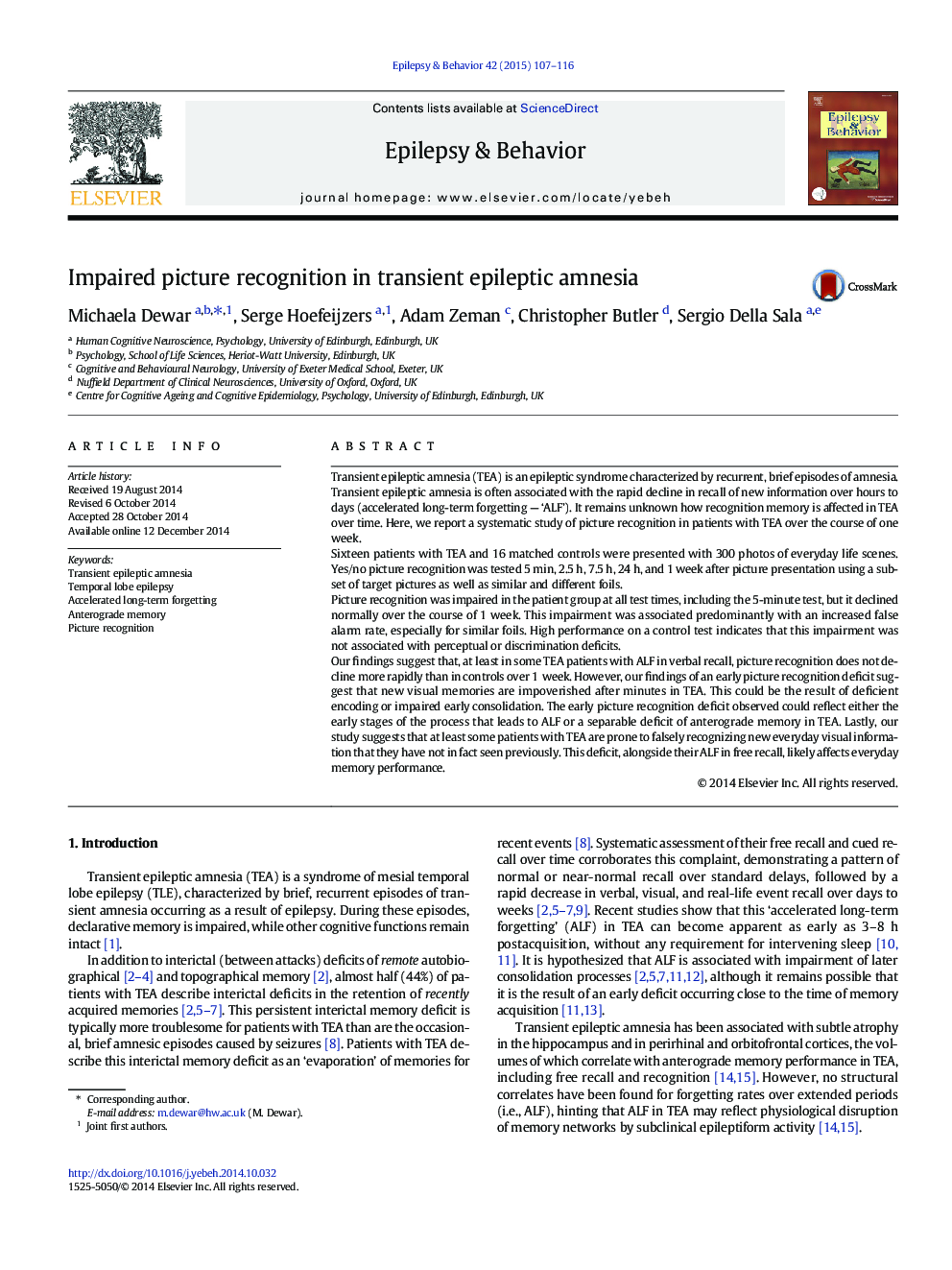| کد مقاله | کد نشریه | سال انتشار | مقاله انگلیسی | نسخه تمام متن |
|---|---|---|---|---|
| 3049612 | 1579847 | 2015 | 10 صفحه PDF | دانلود رایگان |
• Transient epileptic amnesia (TEA) is a syndrome of mesial temporal lobe epilepsy.
• Verbal recall is often impaired after hours to weeks in TEA.
• Picture recognition can be impaired after minutes in TEA.
• Picture recognition declines normally over the course of 1 week in TEA.
• Picture recognition deficit is due to impairment of early memory processes.
Transient epileptic amnesia (TEA) is an epileptic syndrome characterized by recurrent, brief episodes of amnesia. Transient epileptic amnesia is often associated with the rapid decline in recall of new information over hours to days (accelerated long-term forgetting — ‘ALF’). It remains unknown how recognition memory is affected in TEA over time. Here, we report a systematic study of picture recognition in patients with TEA over the course of one week.Sixteen patients with TEA and 16 matched controls were presented with 300 photos of everyday life scenes. Yes/no picture recognition was tested 5 min, 2.5 h, 7.5 h, 24 h, and 1 week after picture presentation using a subset of target pictures as well as similar and different foils.Picture recognition was impaired in the patient group at all test times, including the 5-minute test, but it declined normally over the course of 1 week. This impairment was associated predominantly with an increased false alarm rate, especially for similar foils. High performance on a control test indicates that this impairment was not associated with perceptual or discrimination deficits.Our findings suggest that, at least in some TEA patients with ALF in verbal recall, picture recognition does not decline more rapidly than in controls over 1 week. However, our findings of an early picture recognition deficit suggest that new visual memories are impoverished after minutes in TEA. This could be the result of deficient encoding or impaired early consolidation. The early picture recognition deficit observed could reflect either the early stages of the process that leads to ALF or a separable deficit of anterograde memory in TEA. Lastly, our study suggests that at least some patients with TEA are prone to falsely recognizing new everyday visual information that they have not in fact seen previously. This deficit, alongside their ALF in free recall, likely affects everyday memory performance.
Journal: Epilepsy & Behavior - Volume 42, January 2015, Pages 107–116
